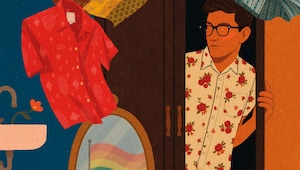Despite knowing how toxic situationships can get, why do we choose to be in one?
“It’s #complicated!

Gen Zs are bursting with creativity, and the effects of it have extended to their dating life and relationships. They seem to have a label for everything, from committed relationships and ‘situationships’, to ‘communicationships’ and open relationships! A recent Tinder survey revealed Gen Z women are drawn to situationships the most. While we're all aware of its toxicity, for some reason, we keep getting tangled up in them. But, why do we do it? Read on to unravel why many individuals find themselves entangled in these ambiguous connections.
You know those messy grey areas between commitment and casual dating that seem to have an irresistible pull on us? Where the connection feels convenient, uncertain, irresolute and possibly non-monogamous? Let me explain... A situationship is a confusing romantic relationship that is less than a relationship but more than a casual encounter or booty call. Author and psychologist, Jonathan Alpert defines a situationship as "the space between a committed relationship and something that is more than a friendship". It sounds pretty simple but is way more complex in reality.

Very obviously, a situationship lessens the burden of responsibility and, to an extent, commitment. For some people, this is ideal. The pleasure of having someone around to spend time, but also knowing there are not many obligations, can be freeing. I asked a few friends why they would opt to be in a situationship, and got some interesting responses:
“If I’m not ready for a committed relationship just yet, but enjoy someone’s company.”
“Haha lol, it was so bad for my mental health!”
“Perks of being in a relationship without the stress/commitment of being in a relationship.”
“For character growth.”
“Allows you to explore other options, almost a teaser into what the relationship could look like.”
“You are not sure if the person is the right fit for you and this lets you test out before committing.”

Many of these responses explicitly explain that the appeal of a situationship is that there are little or no strings attached! In our teens and early 20s or maybe even later, people are not necessarily looking for commitment. In fact, it seems daunting to most. Moreover, the human need for validation and self-worth constantly serves to be a justification for wanting to be in a situationship. We all want to feel loved, unique, and deserving of adoration.
Toxic situationships can cloud our judgement and lead us to assume that if we put in more effort or demonstrate our worth, things will improve on their own. We persist because we are obstinate beings who cannot give up. Another common explanation for choosing a situationship is emotional baggage. If you've ever been in a toxic relationship, you can unintentionally find yourself drawn to other ones, like a perverted feeling of familiarity that leads us to believe it is common. Lastly, hope ties us down to these life situations. Even in toxic situationships, we convince ourselves that things will magically transform into a fairy-tale romance. Often they do, but in my case, they did not. But that tiny glimmer of hope keeps us stuck in a cycle, believing change is just around the corner. Hope can be a beautiful thing, but it can also blind us to reality.
It is unfortunate but true that situations like these bring us to lose rationality at times and often get the worst out of us, but we still indulge in them. Awareness is the key to breaking free from this chaos. It's time to embrace self-love, introspection, and a healthy dose of reality!
more from Life

Eight cities, eight stories—check out where India’s matcha lovers get their fix

How to survive party season without burning out your body

Is luxury for Gen Z?

The only holiday watchlist you need if you’re not leaving the house

The ultimate gifting list that will make you everyone’s favourite Secret Santa

What does your texting pace say about you?

How to sit at the bar alone and actually meet people instead of just staring at your phone the whole time

Is 2025 the year when romcoms finally got emotional intelligence right?

Why logging off after work still feels like a myth in creative industries

A love letter to florals and the beauty of growing beyond the lines
